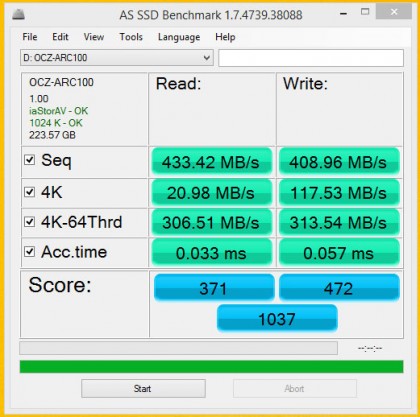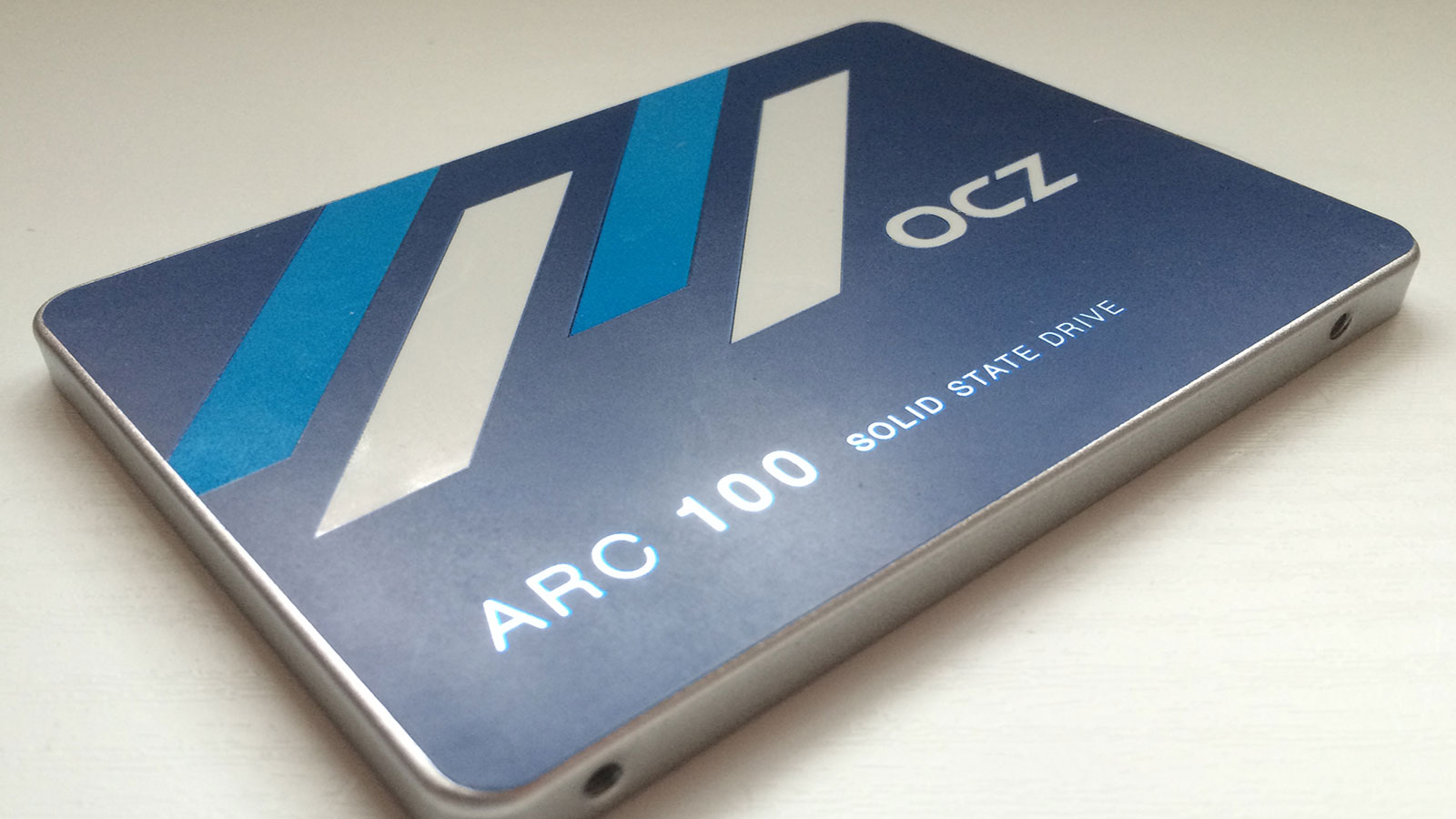Why you can trust TechRadar
Is the OCZ ARC 100 a better buy than the Crucial MX100 or the Samsung 840 Evo? Since all three are so close in price, for many people this will be the ultimate question when looking for an affordable SSD.
I wasn't able to test the Samsung 840 Evo under the same conditions as the ARC 100, but I did test a 480GB version of the Crucial MX100 using the same workstation. The OCZ ARC 100 measures up reasonably well, although it doesn't surpass that drive in overall performance.
As usual I first ran CrystalDiskMark for some basic performance results. The ARC 100 managed 408.3 MB/sec sequential read and 427 MB/sec write, approximately ten per cent slower than the MX100.
AS SSD showed the same trend, with 433 MB/sec read, compared with 498 MB/sec on the MX100. Writes were similarly lower, 408.96 MB/sec using the ARC 100, 464.5 MB/sec using the MX100.
Using that program we get a figure for the drive's access time, which comes out as 0.033ms read and 0.057 write, which is pretty good, and no worse than any other consumer SSD.
But compared with a premium drive, SanDisk's Extreme Pro, the differences is more noticeable. Although that drive costs almost twice as much.
Looking at a final benchmark, ATTO, which tests a range of block sizes, the ARC 100 scores a small win over the MX100, in read speeds. Up to 32K it just pips the MX100, although when block sizes get bigger the ARC 100 is slower again and as before both drives are outpaced by the SanDisk and Samsung's 850 Pro SSD. After all the testing and figures, however, it remains clear that the ARC 100 is a fine SSD, and won't disappoint at all if you're moving from a standard hard disk for your Windows installation. It's far from the best, but it's still one of the least expensive SSDs on the market.
Sign up to the TechRadar Pro newsletter to get all the top news, opinion, features and guidance your business needs to succeed!

